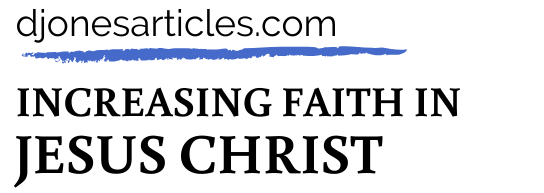In one of the parables the Savior mentions a Pharisee and a Publican.
“And he spake this parable unto certain which trusted in themselves that they were righteous, and despised others: Two men went up into the temple to pray; the one a Pharisee, and the other a publican.
The Pharisee stood and prayed thus with himself, God, I thank thee, that I am not as other men are, extortioners, unjust, adulterers, or even as this publican. I fast twice in the week, I give tithes of all that I possess. And the publican, standing afar off, would not lift up so much as his eyes unto heaven, but smote upon his breast, saying, God be merciful to me a sinner. I tell you, this man went down to his house justified rather than the other: for every one that exalteth himself shall be abased; and he that humbleth himself shall be exalted.” (Luke 18: 9 – 14 in the Bible)
Who Were the Pharisees
The Pharisees were the largest and most influential of the three sects of Judaism at the time of Christ. The Pharisaic movement in the Jewish state rose from the ranks of the lay lawyers of the Greek period to become the leading religious and political party. The main characteristics of the Pharisees were their legalism and their legalistic inflexibility. They were known for their strict accuracy in the interpretation of the law and their scrupulous adherence to living the law in every minute detail. This caused them to be known as the strictest of Jewish sects in observing their tradition. They shunned the non-Pharisee as being unclean, thereby keeping themselves separated from those they considered to be the common people. Paul was a Pharisee, the son of a Pharisee, and he was educated by Gamaliel, a Pharisee. On three different occasions he declared himself to be a member of the sect. The first was at the time he was on trial, then in his plea before Agrippa, and later in writing to the Philippians. This training as a Pharisee made him an extremist in his devotion to the Jewish law, which answers the question as to why he was such a zealous persecutor of the Christians prior to his experience with the Savior on Damascus Road.
Who Were the Publicans
Publicans were tax collectors and were looked down upon with contempt. Ordinary taxes, such as land taxes, were collected by the Roman officials; but toll taxes for transporting goods were usually collected by Jews under contract with the Romans. These collectors, or publicans, made a profit on the transactions. Their fellow countrymen had no higher regard for them than for thieves and robbers. The trade lent itself to graft and extortion, and the publicans had the reputation of having some of the tax money stick to their own fingers. Jews who made such collections for the Romans were regarded as traitors and as despicable for selling their services to a foreign conqueror. Publicans and members of their families were considered so contemptible that they were not allowed to hold public office or give testimony in a Jewish court. Matthew was a publican, a gatherer of taxes, until his calling to be a disciple.
How Does this Parable Apply to Us
Even though the subject matter was a Pharisee and a Publican, it was directed to all the self-righteous who lack the virtues of humility and who use self-righteousness as a claim to salvation. The Savior said on another occasion: “Except your righteousness shall exceed the righteousness of the scribes and Pharisees, ye shall in no case enter into the kingdom of heaven.” (Matt. 5:20 in the Bible.) Humility is an attribute of godliness possessed by true followers of Jesus Christ.
It is easy to understand why a proud man fails. He is content to rely upon himself only. This is evident in those who seek social position or who push others aside to gain position in fields of business, government, education, sports, or other endeavors. Our genuine concern should be for the success of others. The proud man shuts himself off from God, and when he does he no longer lives in the light. The Apostle Peter said, “Be clothed with humility: for God resisteth the proud, and giveth grace to the humble. Humble yourselves therefore under the mighty hand of God, that he may exalt you in due time.” (I Peter 5: 5-6 in the Bible) Today on every busy street there are Pharisees and Publicans. We should develop the virtue humility.
Dallas Jones is a local leader for the Church of Jesus Christ of Latter-day Saints. Some of the Article came from Howard W. Hunter April 1984 General Conference. Any questions on this parable call (231) 383-8359 or send an email dallasjones8349@yahoo.com
